FRONTIERS • HOLY LAND
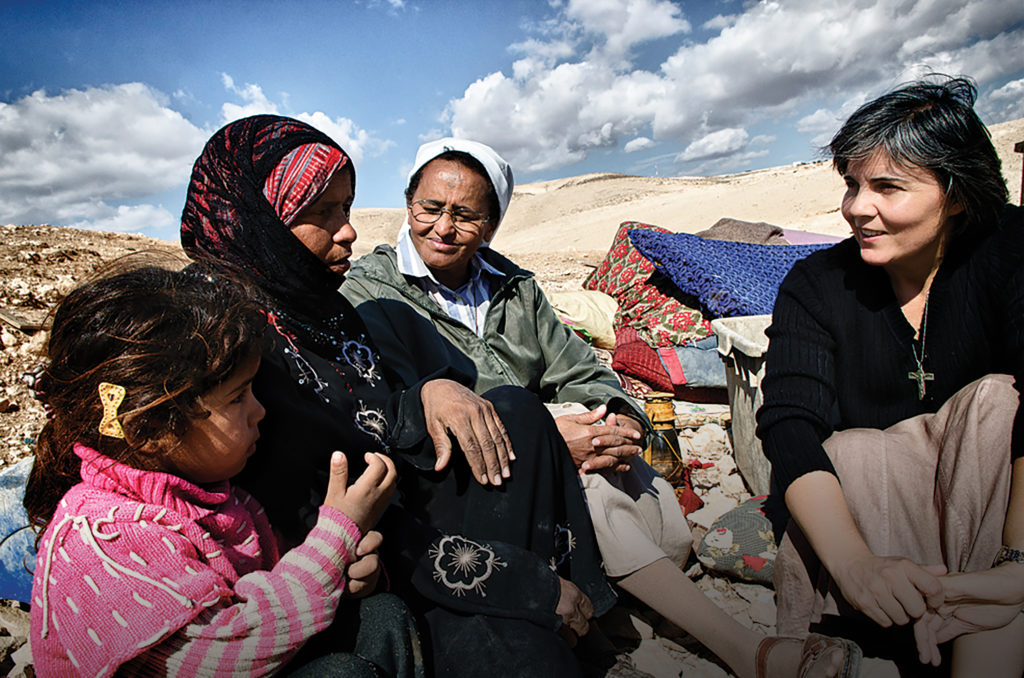
has just been demolished. Photo: Alicia Vacas.
“Pray For The Peace of Jerusalem” (Psalm 122)
Alicia Vacas Moro, Provincial of the Comboni Sisters in the Middle East,
was one of the fourteen women who received the 2021 International Women of Courage Award
from the US Department of State that honours women who demonstrate leadership in their human rights work. The Spaniard analyses for Worldwide the recent episodes of conflict between Israel and Palestine and the mission carried out by their religious communities in that context
BY Sr Alicia Vacas Moro | Comboni Sister, East Jerusalem
SINCE THE outbreak of hostilities on 11 May, an open-ended ceasefire came into force between Israel and the Palestinians in Gaza on 21 May, after 11 days of conflict that left at least 213 Palestinians (67 children) and 12 people in Israel dead.
After the announcement of the ceasefire and the last rocket had crossed the sky, the interest of the international public swiftly turned toward other issues: the European Soccer Cup, the last Covid variants, or the lifting of restrictions for pubs and restaurants in different countries; but a ceasefire is still very far from peace.
The fighting has stopped, but many vitally important questions have to be resolved in real time if another conflict is to be avoided and Israelis and Palestinians are to live together in peace. It is clear that they are not able to resolve the situation by themselves; the international community will have to broker a lasting solution if the cycle of violence is to be ended and peace to be established in the Holy Land, after more than six decades of conflict.
The background
Fr David Neuhaus SJ, local superior of the Jesuit community in Jerusalem, suggested a very eloquent image of the situation in a recent interview. “We are living at the centre of a festering and untreated wound,” he said. Fr Neuhaus, an Israeli Jesuit of South African Jewish origin goes on to say: “This wound is the product of the events that took place last century. Of course, there was a build-up leading to the events of the 1940s, but the war in 1947–1948, called the Independence War by the Israelis, and Nakba (The catastrophe) by the Palestinians, left us with the following reality. This is the real centre of this wound: the Israelis got a homeland and international recognition—in fact the State of Israel was born. The Palestinians, who were promised a homeland, received nothing but a regime of occupation and discrimination. This has been dragging on for 73 years (1948–2021). It is not a surprise that violence breaks out from time to time as this wound continues to fester ideologies of hatred, revenge and violence on both sides.”
On one side, Palestinians live in this regime of occupation and discrimination, depending on where they are on the map—as citizens in Israel, as Jerusalem residents, in the West Bank and Gaza, or as refugees abroad. On the other, Israelis live in a system that keeps them under a dreadful fear of revenge and retaliation. Anger and fear are two dangerous outcomes of this festering wound and break out into vicious violence from time to time.
The horror we have recently witnessed illustrated the true ugliness—slightly more masked before it erupted into war—of the violence that has been simmering under the surface. Wars transform aggressive thoughts and words into violent acts. These two peoples have been at war for decades; four or five generations have been teaching their children that the other side is an enemy to be fought. The past two generations had almost no contact with the erection of the Separation Wall.
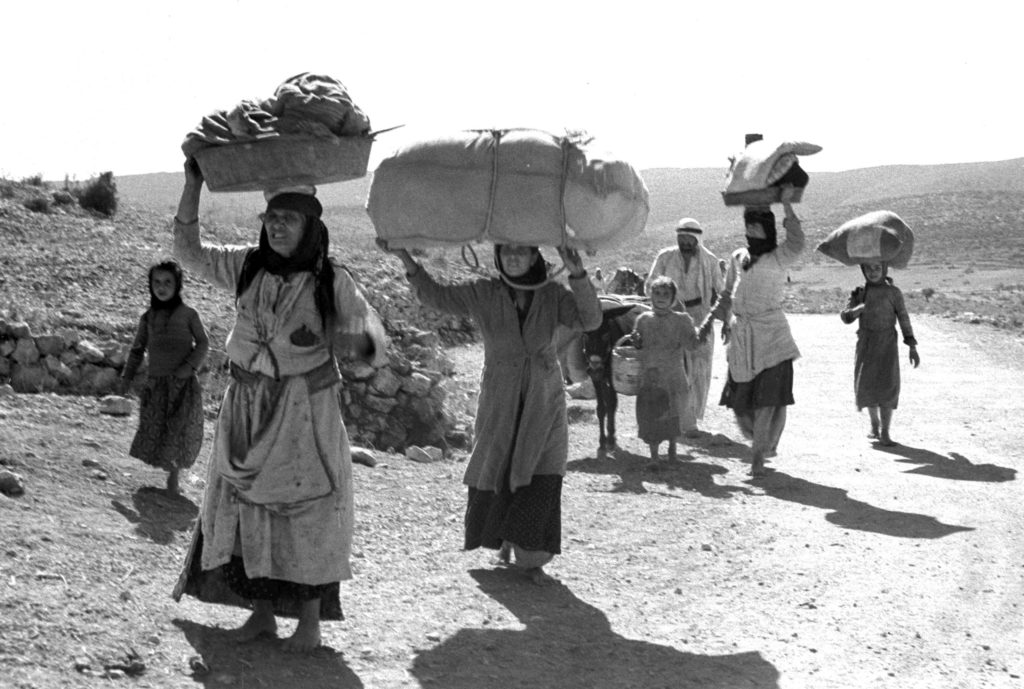
The trigger
It was not a surprise that the situation became critical and spilt into international headlines. Different events came together, building up an escalation of tension and provocations which eventually erupted in the subsequent situation.
Firstly, the month of Ramadan had just ended. This is a time of joy in the Muslim world, of fasting and prayer, but also of social gatherings and intense family life. Jerusalem, having the Dome of the Rock and Al Aqsa Mosque, becomes a crucial space in this month. Ramadan started on the 21 April. Jerusalem was already very tense; indeed she has been tense for months and years, being at the very centre of the dispute, and having an iconic role for all the actors involved.
At the beginning of the month of Ramadan, Muslims flowed into the Old City to pray in the mosques through the famous Damascus Gate, the social and commercial centre of East Jerusalem. The access to the mosque was denied to many, and, inexplicably, the Damascus Gate was closed to the public with an intricate system of barricades. It was seen as an attempt to control East Jerusalem, to make Palestinian Arab residents of East Jerusalem and all Muslims who flow to Jerusalem more and more unwelcome in their own city.
This led to confrontations; angry young people taking to the streets, refusing to accept these barricades. On the 8 May, a very important day in the month of Ramadan (Laila al Qader), when people flock to the Haram al Sharif (the Holy Mosque) in hundreds of thousands to pray and spend time there, the Israelis inexplicably blocked many buses flowing in from northern and central Israel, carrying Palestinians who are Israeli citizens. The buses were blocked, and the pilgrimage ended up as a demonstration, mounting tension and anger, and a lot more violence.
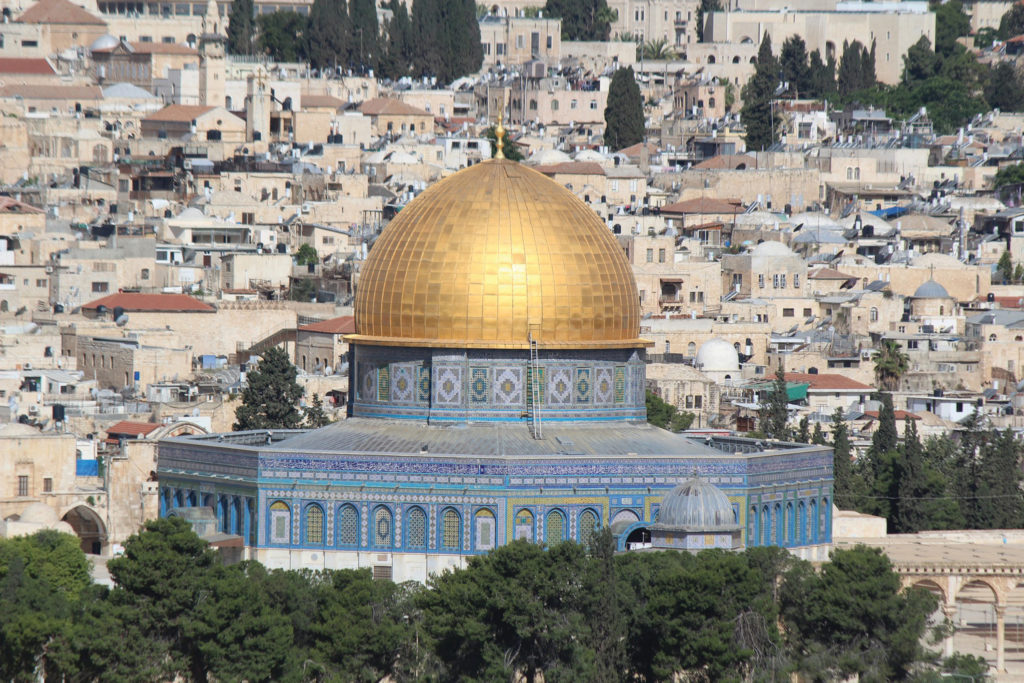
The second event was the Israeli legal process to evict 28 Palestinian families from a neighbourhood about a mile away from the area of the Damascus Gate. Again, many Israelis may argue that the properties where they are living originally belonged to Jews. That is a legitimate claim, however, the claiming of properties inhabited by Palestinians that once belonged to Jews is exclusively available to Jews. There were many more Palestinian properties, homes, fields and businesses from the time before 1948 that were confiscated without the possibility of a return. So again, the frustration of feeling that the law is used to promote exclusive control in East Jerusalem was certainly the cause of the anger.
While all this was going on, a group of extremist Jews decided to hold a march to restore Jewish pride through the Damascus Gate (where people flow into the Old city during Ramadan). This was the 22 April. Their path was blocked by the police and they couldn’t reach the gate, but they turned around to West Jerusalem and beat Arabs wherever they found them; meanwhile the demonstrations intensified.
Another element of the anger was that the Palestinian Authority (PA) had announced the forthcoming elections. The Israeli government made it clear that there would be no electoral process in East Jerusalem—even though, according to international law, East Jerusalem is part of the Palestinian Occupied Territories, together with the West Bank and Gaza, and they were supposed to participate in the election process. Then the PA decided to cancel the elections.
Demonstrations broke out, there were scenes of the Israeli soldiers and policemen going into the Haram Asharif and violently confronting the demonstrators—and the situation became critical. At that point, Hammas announced that if all the Israeli Defence Forces were not removed from the Old City of Jerusalem and from the compound of the Holy Mosque, they would start to send missiles into Israel. That’s when it began. The response of Israel was to bomb Gaza and so hundreds of people were killed, with extensive damage to property—and more hatred and revenge.
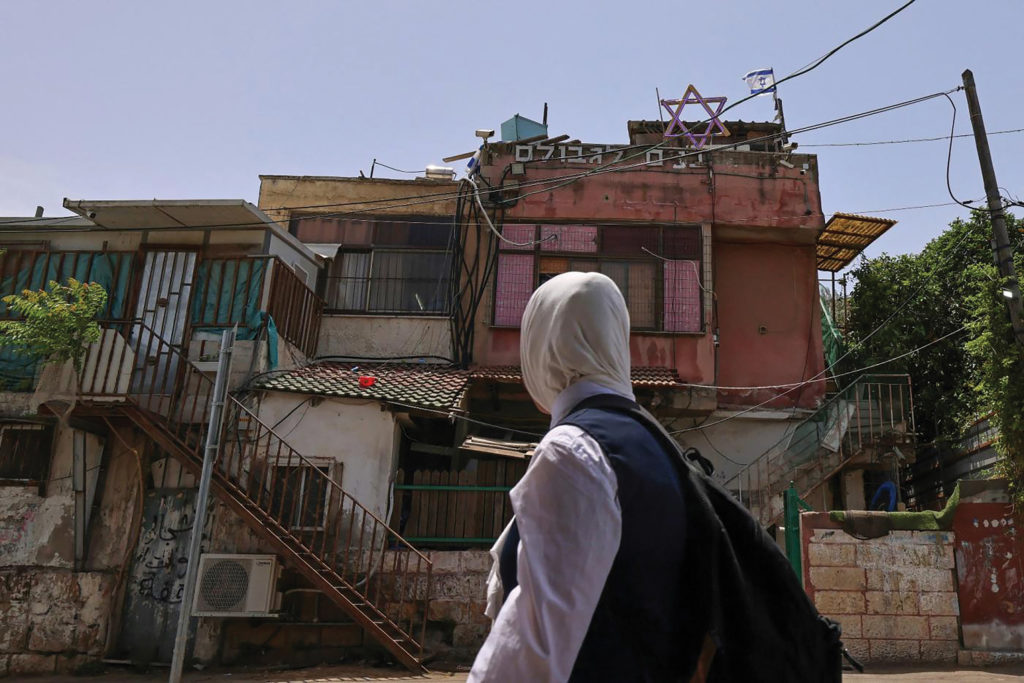
The right to defend themselves
Many voices in the international community, from the US President Biden to the European Union, have highlighted Israel’s right to defend themselves. Enlightening in this regard is the answer of Fr Neuhaus, Israeli citizen, to better understand its implication: “Most Israelis—he said in a recent interview—think indeed that they have the right to defend themselves, and this is a right that no one can take away from them. However, I think that it is part of the process of discovering that your right to security cannot be based upon regimes of occupation and discrimination. Choosing to occupy other people’s space, to discriminate against others, is choosing to live in insecurity, because you are making choices that put other people under the pressure of reacting with anger, with the desire for revenge. One of the important things for us Israelis to understand, is that if we choose to continue to walk in this path, occupying other people’s indwelling and imposing a regime of discrimination, we are walking a path towards suicide. Annexing more land, occupying more homes, disrupting people’s lives and assaulting their basic rights means destroying any possibility for a future of peace. The only path for us is really to seek a way wherein all peoples can live together in this region.”
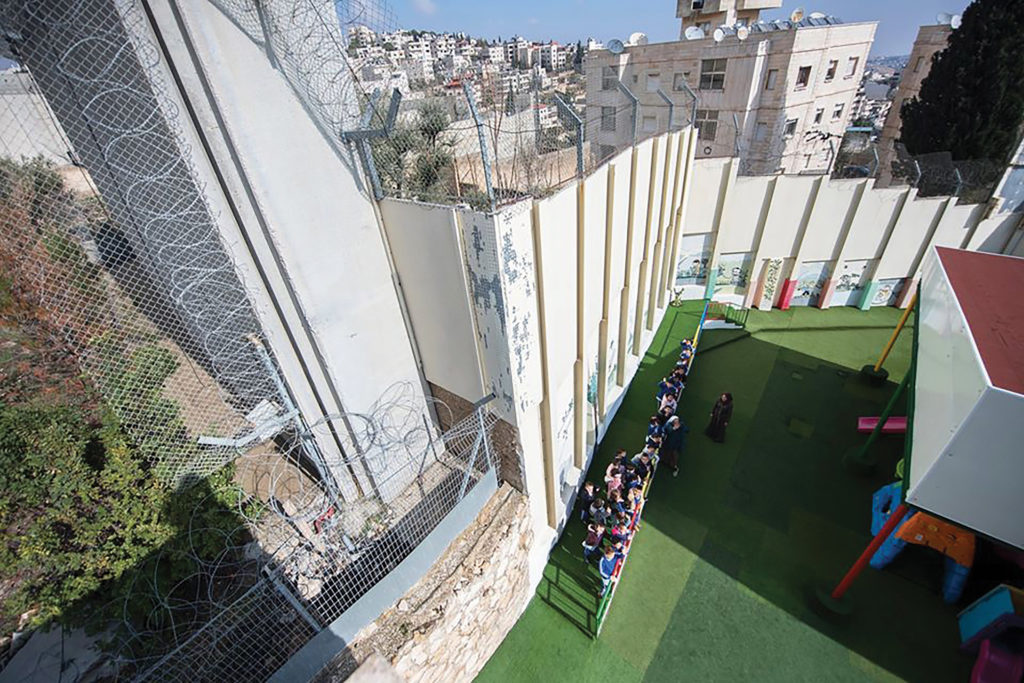
Our presence
The community of the Comboni Sisters in Jerusalem lives days of great sadness and deep frustration as violence rages all around. Inserted in this context of political instability and chronic conflict, the community rises in the shadow of the ‘security wall’ that marks the lives of the inhabitants of the neighbourhood and divides both our religious community and the whole village in two.
The main peculiarity of this religious community is the fact that, since the establishment of the ‘security wall’ in the area, our sisters made the choice to live and work on both sides of the wall, to reach out to the different communities involved in the conflict, giving special attention to the most vulnerable, those who suffer the consequences of oppression, occupation and discrimination.
Five sisters live in the Comboni Spirituality Centre on the Israeli side. They offer hospitality to other Comboni members of our congregation who come to enjoy sabbatical periods in the Holy Land, pilgrimages and Bible studies. The community also runs a kindergarten and is involved in different pastoral activities with the local church—both Arabic and Hebrew speaking—in mission animation, education of religious leaders and interreligious dialogue.
Three other sisters from the same community live in a Christian housing project on the Palestinian side, to ensure the presence of the sisters on both sides of the Separation Wall. They serve the Bedouin camps in the desert surrounding Jerusalem, and work with asylum seekers and refugees in Tel Aviv, in a fruitful collaboration with various Israeli NGOs on human rights, asylum seekers rights and health projects.
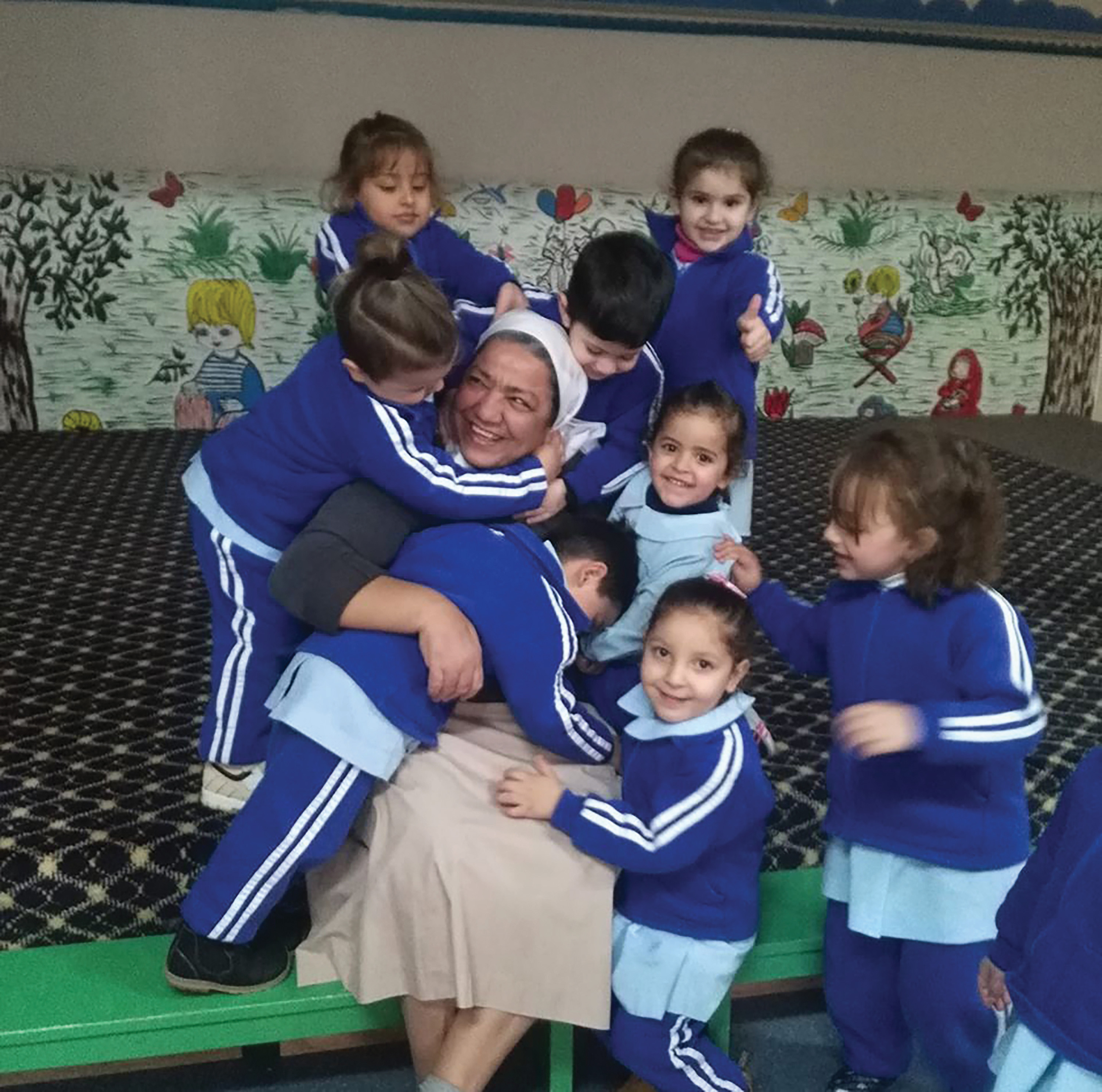
Our presence aims to support the weakest and most vulnerable, and to challenge both sides, so that we can move beyond where we are.
Dialogue is an essential part of our lives; mainly in our daily life through encounters with our Muslim neighbours and our Jewish friends and collaborators. We also search together for justice and peace, supported by our common values of respect for the sanctity and dignity of human life, as well as participating in interreligious groups which pray and study together from the different religious perspectives.
We are convinced that the Catholic Church has a very important role to play, particularly by speaking out and forming consciences. We, as Christians, are part of the problem, and to become part of the solution, we have to be aware of the facts; what it means to live under occupation and discrimination, in a situation of fear generated by the State of Israel that insists on imposing it upon Palestinians and Arabs who live in the areas under their control.
Deeply aware of how the discourse of Christians about Jews in the past had disastrous effects on the actual lives of Jews, the Church must continue to formulate the ongoing revolution that has led to a new relationship with the Jewish people. Deeply aware of how the practices of the powerful throughout the centuries dispossessed peoples of their homelands and destroyed their cultures, the Church must continue to formulate her solidarity with those who are the victims of occupation and dispossession. In the Holy Land, these two sensibilities are in incredible tension and the Church is called to clearly formulate a vision which promotes the humanity, dignity and prosperity of both Jews and Palestinians. This clearly involves speaking out fearlessly, not as a diplomat, but as a prophet.
